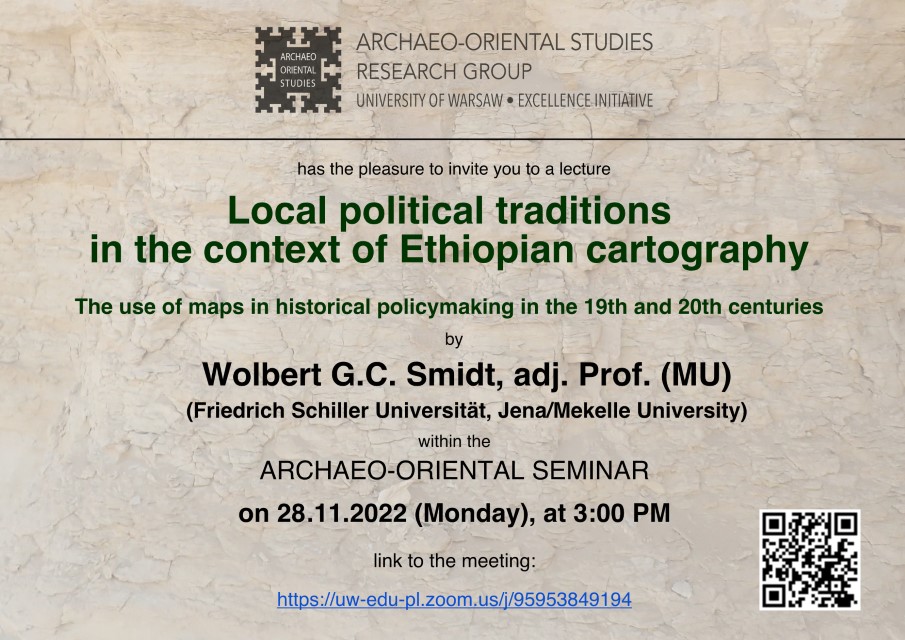Zespół Archeoorientalistyki zaprasza na kolejne seminarium. Wystąpi na nim prof. Wolbert Smidt (Friedrich Schiller University Jena / Mekelle University) z wykładem „Local political traditions in the context of Ethiopian cartography. The use of maps in historical policymaking in the 19th and 20th centuries”
Abstrakt: „Especially starting from the 1960s, maps had been increasingly used in Ethiopian academic publications and higher education – starting from Mesfin Woldemariam’s Atlas of Ethiopia. The illusion of objectivity was so perfect that maps as presented in that time started shaping the image of Ethiopia and projected recently created international and internal boundaries into the past. Modern map making created a sort of new kind of „icon” representing Ethiopia and Ethiopian identity. However, the contrast with both historical documents and local territorial practices is striking: While locally ancient polities continue existing – sometimes still invested with considerable power – in parallel to state structures, very often simply perceived as „ethnic groups” only, they are invisible on modern maps.
However, older maps of the 19th century, based on local informants, princes, governors, elders and merchants guiding foreign researchers and long-term settlers, show an amazing diversity of territories, borders, local groups and allow a deep insight into the political diversity of territories in the region before the military expansion of the modern Ethiopian state in the late 19th century. Older maps therefore, seem to allow strikingly authentic insights – even if incomplete due to biases of cartographers and informants – into the multitude of territories, smaller states neighboring a historically much smaller Ethiopia, and independant territories.
Comparing such observations with modern research in local contexts, which confirm a high degree of socio-political diversity on the ground (labelled „ethnic” in a typical colonial misunderstanding of African diversity), one can discover that older maps are highly valuable instruments for the study of Ethiopian realities in contrast to the „flattened” and highly polished maps of modern Ethiopia which represent – that is the conclusion – a country which just exists in the fantasies of political leaders.”
Seminarium odbędzie się w poniedziałek, 28 listopada o godzinie 15.00 na platformie Zoom: https://uw-edu-pl.zoom.us/j/95953849194
Czytaj więcej na temat projektu „Archeorientalistyka”.

